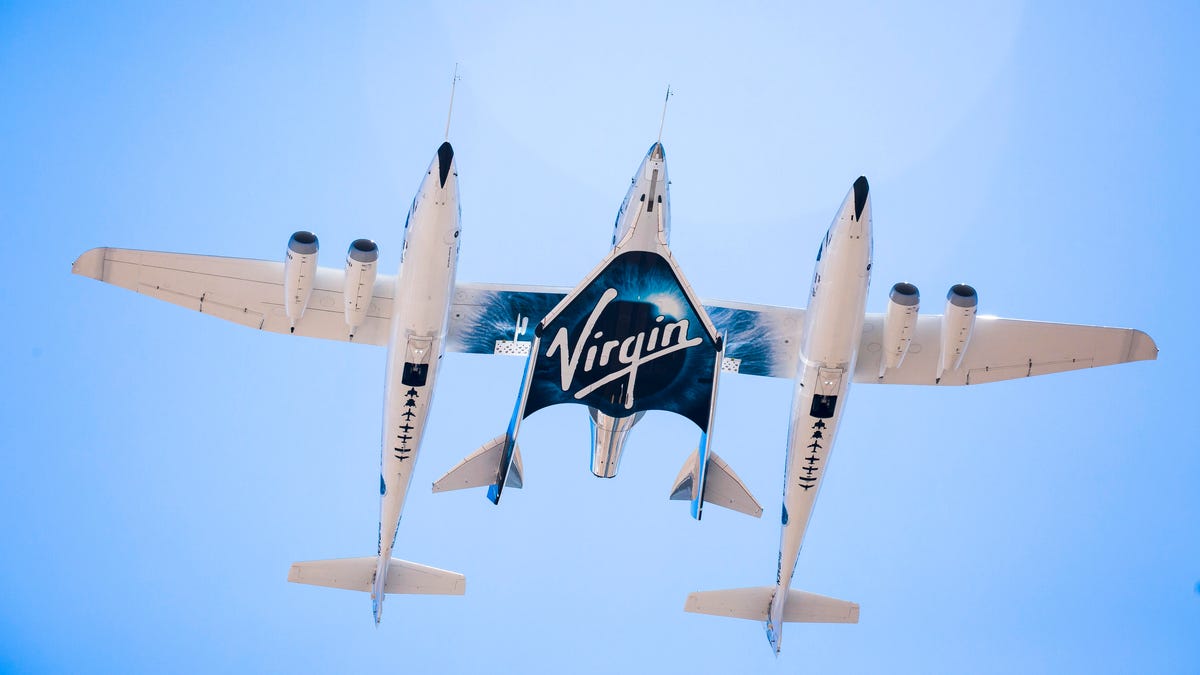Virgin Galactic gets first official OK to fly passengers to edge of space
The world's first commercial spaceline is now open for business.

VMS Eve and SpaceShipTwo Unity.
The Federal Aviation Administration has given Richard Branson's Virgin Galactic the green light to begin flying customers to the edge of space, but first the company plans to put Branson and employees on the final test flights of its SpaceShipTwo vehicle.
A statement from Virgin Galactic Friday says the FAA has updated the company's commercial space license to essentially allow for its space tourism business to begin.
An FAA spokesperson confirmed the report with a brief statement from the agency: "A new chapter in the story of human space flight is beginning," the statement reads. "The FAA approved the first commercial space license to launch private individuals into space."
Full Commercial Launch license ✅ Our recent #Unity21 spaceflight performed well against all flight objectives and marks the first time the FAA has licensed a spaceline to fly customers. Next up in our test program – a fully crewed spaceflight this Summer https://t.co/y0P69gofbK pic.twitter.com/fAUWxp8YNy
— Virgin Galactic (@virgingalactic) June 25, 2021
The stamp of approval comes after a successful test flight from Spaceport America in New Mexico last month.
"Today's approval by the FAA of our full commercial launch license, in conjunction with the success of our May 22 test flight, give us confidence as we proceed toward our first fully crewed test flight this summer," CEO Michael Colglazier said.
Virgin Galactic's license to carry "space flight participants" is valid through July 2022 for missions from either Spaceport America in New Mexico or Mojave Air and Space Port in California.
So far, Virgin Galactic has sent test flights to the edge of space with its pilots, experimental payloads for NASA and others, and the company's chief astronaut instructor Beth Moses.
The development comes as another billionaire with a space tourism offering, Jeff Bezos and his Blue Origin, are aiming for a July 20 crewed launch. This would be Blue Origin's first flight with humans aboard, including Bezos, his brother Mark, a yet-to-be-identified auction winner and a fourth passenger riding aboard a New Shepard rocket for a quick vertical flight to space followed by a parachute-assisted landing back on Earth about 10 minutes later.
There has been some speculation Branson might like to beat Bezos to space. However, a spokesperson says the company does not "have any announcements about Virgin Galactic's future flight plans at this time."
Virgin Galactic is still planning three more test flights with its employees, including at least one with Branson on board. Previously the company has said it would finalize details for those flights once it had the thumbs-up from the FAA.
Now that bureaucratic thumb is pointing definitively toward the sky.
Follow CNET's 2021 Space Calendar to stay up to date with all the latest space news this year. You can even add it to your own Google Calendar.

